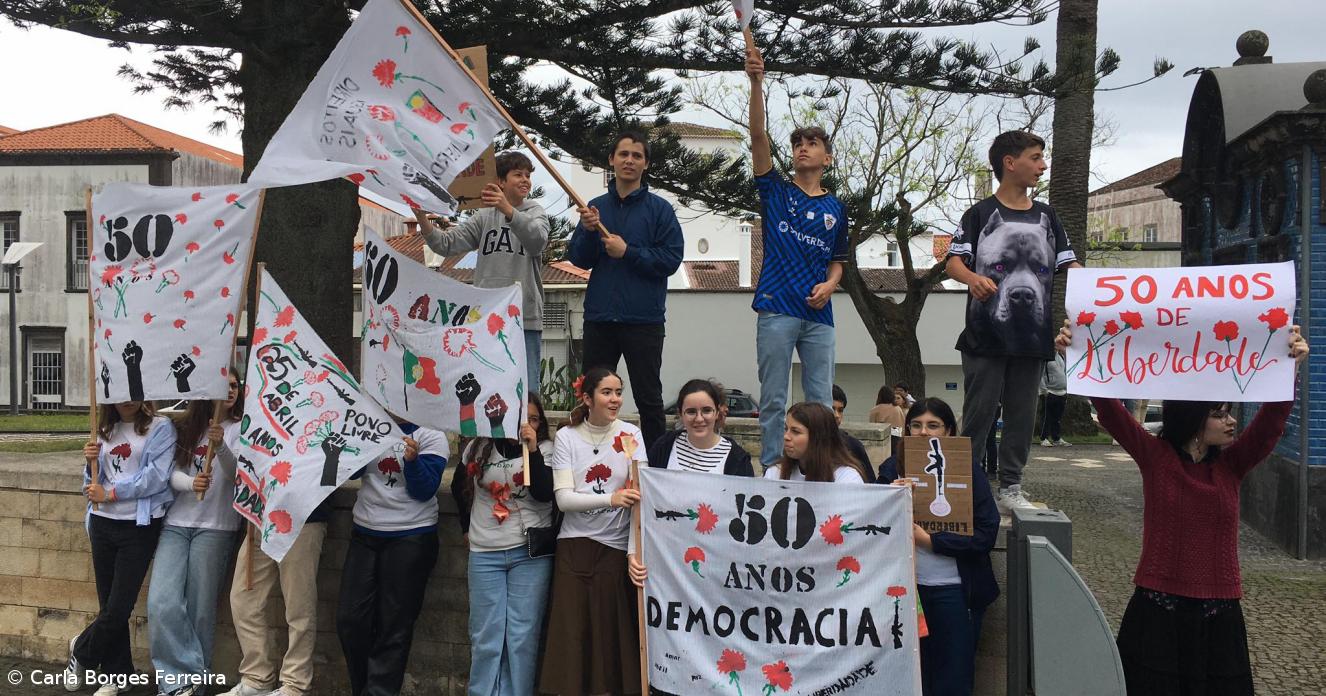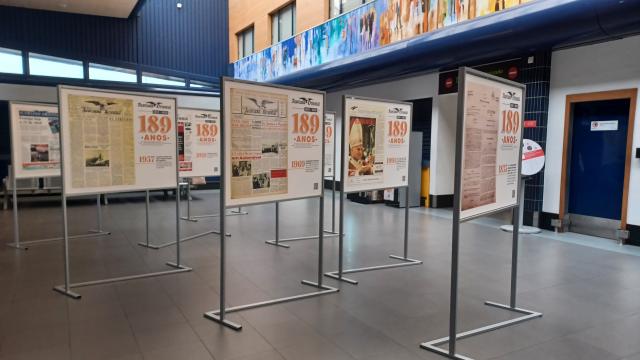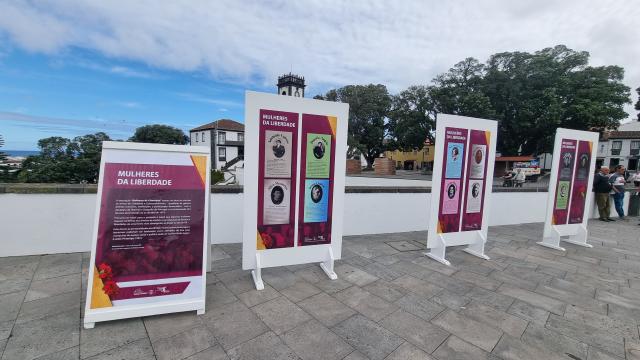Autor: Tatiana Ourique
The Terceira Tech Island (TTI) project operates under a dichotomy between the Regional Government of the Azores and Praia da Vitória City Hall, in response to the municipality’s urgent need for dynamization.
"This project aims at creating a technological hub for companies dedicated to software development, as well as at creating qualified employment. The goal is to mitigate the social and economic effects of downsizing the Lajes Base, in line with the Economic Revitalization Plan of Terceira Island (PREIT)," said Sérgio Ávila, Vice President of the Regional Government of the Azores in an interview with Açoriano Oriental.
The project started in October 2017, during the Web Summit – the well-known international technology conference – with the aim of putting the Azores under the radar of investors in the sector. "In practice, our bet on Terceira Tech Island was to combine nature with the ability to produce software, from the Azores to the world. From Terceira Island we work for the world, with 22 companies producing and exporting software while generating more than 170 qualified jobs and contributing to the professional stability and employability of many Azoreans," said Sérgio Ávila.
At one point, the Lajes Base had a contingent of two thousand US military personnel and their families while employing two thousand Portuguese civilians in its facilities. Ávila states that, "due to the results obtained in only 2 years of implementation of this project, whether in terms of companies established, jobs created or impact on local economy, I think that in the medium term we will be able to achieve this goal in its entirety".
In the last quarter of 2017, the first trainees arrived at the Code Academy for a fully paid intensive training in JAVA/JAVA SCRIPT. Three years later, the center is reaching the target of 200 young graduates. Also, a second training entity has now joined Code Academy: IT Up, focused exclusively on OutSystems technology training.
Currently, Terceira Tech Island comprises companies in the fields of technology applied to financial markets, banking and insurance, as well as technology applied to health and process digitalization.
For Sérgio Ávila, the project’s crucial factor is "the capacity to qualify human resources and have trained programmers available in the Azores, providing them with specific skills in technology. This is a decisive factor in attracting technological companies, taking into account that there are more than 40,000 programmers lacking in Portugal and more than 500,000 in Europe, and that companies set up where there are qualified programmers. Therefore, this is an essential factor in attracting companies that increasingly need programmers in response to digital economy.
The companies’ facilities are located in the urban center of Praia da Vitória, a factor that, according to Ávila, provides a multiplier effect in local economy: "in addition to creating jobs, Terceira Tech Island has also had a direct impact in the revitalization of the urban center of Praia da Vitória, which was facing progressive desertification after the reduction of activity in the Lajes Base. The project also constituted a strong contribution to the revitalization of Praia da Vitória by settling companies and their employees in the city”.
The government member in charge of TTI also believes that the local community felt the project’s structural importance and economic impact, right in the middle of the digital age: "More and more Azoreans have this clear notion that developing software is not 'playing with computers', but rather a professional career with huge prospects and possibilities of growth. From 2018, the amount of direct salaries from the jobs generated by TTI are expected to reach 3.5 to 4 million euros. TTI already has a significant direct impact on the region’s GDP (Gross Domestic Product), in addition to accounting for the billing of the established companies and the multiplier effect of their activity," he says.
Besides meeting the needs of the companies incubated in TTI, the new programmers have also been recruited by companies set up in the Science and Technology Park of Terceira Island (Terinov) and by several Azorean technological companies, in several islands.
Training is intensive and comprises a less conventional workload: "Our trainers are highly qualified programmers, some of them with careers in top technological companies, and this is relevant. There are no "subjects", but rather a program structured on basic principles of logic, hardware and introduction to universal programming languages. Mastery of English is fundamental for those who want to complete the training program. These are intensive courses, called Bootcamps, and basically trainees learn how to learn", says Sérgio Ávila, adding that the recruitment process is demanding, since it focuses on the pre-competences of competitors to learn how to program. Ávila states that, to this date, around 1500 people have enrolled in the training program.
This number could be justified by the support provided to displaced trainees. For students coming from other islands, the Regional Government covers their stay at the Belo Jardim Training Center, which is located near the training facilities. Therefore, students from all the islands are provided with the necessary conditions, at no cost, to attend training at Terceira Tech Island.
According to Sérgio Ávila, students arrive from all the nine islands of the Azores and "many young Azoreans who used to live on the mainland and even abroad have returned to the Azores because of Terceira Tech Island. Some already have professional experience, others have a degree or a doctorate in the most diverse areas of training, or also the 12th grade of schooling or professional training. Many were employed in other areas and left their jobs to come to this attractive career, others did so after completing their studies and others were unemployed. The main message is that a career as a programmer is open to everyone, regardless of their level of education or training area. They are working side by side with programmers who hold a PhD and with other programmers who worked in construction, at gas stations or who were waiters. The fundamental thing is to be talented, to be willing to learn and to have a great work capacity".
In the short term, the Regional Government of the Azores wants to create 420 direct jobs, since this was the number of jobs lost with the downsizing of the Lajes Base, a goal that Sérgio Ávila believes can be achieved in a short time: "The reason is simple: most technological companies are linked to areas of great development, namely health, banking and insurance, but there is also development of specific projects for the areas of agriculture, the Sea, machine learning, Big Data, IoT, and artificial intelligence", he believes.
From Armenia to the Azores and from business management to programming
Meri Hayrapetvan was born in Armenia and, while in Erasmus in Romania, she met the Azorean who would become her husband. Meri arrived in the Azores in September 2018 and for 8 months could not find work. In March 2019, she joined the first IT Up training class and, in the final stretch of training, she had already been recruited by a company waiting for the new "batch" of students. "The course ended in June and during its last week I was invited to work in a company that was going to open a branch in Praia da Vitória. On July 8th I started working". Like Meri, three other classmates joined the staff of OSQuay.
"It was a very intensive three-month period. It wasn't even my field of work. I had already worked in Armenia and Bragança in business management". As for life in the Azores, the young Armenian admits that reality is quite different from the one in her home country. She loves the fact that she sees the ocean every day and that she has a lot of time to spend with her friends, but she misses the large shopping malls in urban centers.
When asked about returning to her old profession, Meri assures that it is in programming that she feels complete and, because it is a field in constant evolution, it is a very attractive profession.
Goodbye architecture, hello programming
Luís Mesquita is 33 years old and, halfway through his Master's Degree in Architecture at the University of Porto, he took a break and came to live in the Azores. It was also love that brought him to São Miguel and to "work to pay bills", but that never satisfied him: "I worked in catering, but I didn't like what I did, so I decided to take a chance on this course in Terceira Island". The young man from Porto guarantees that the opportunity came "at the right time because I was in a phase of deciding what to do with my life. I already had a dormant desire to study and learn programming".
He attended the Code Academy between January and May and architecture immediately ceased to be a goal.
Luis listed to Açoriano Oriental the reasons that led him to give a very positive account of this formative experience: "It is very good, not only given the quality of the training itself, but also the bonds – almost familiar – created between trainers and trainees. The training environment is very good and, above all, many doors are opened.
Luís Mesquita also says that, during training, the companies incubated at Terceira Tech Island start following-up trainees with the objective of recruiting them at the immediate moment of completion. "The Code Academy itself promotes this articulation and organizes moments for companies to present themselves to future programmers. I finished the course in May and in the following week I was already being called for interviews. I had about five or six and got an offer three weeks after completing the training. In less than a month I was working". As for his colleagues, the programmer guarantees that practically everyone got work and those who are not programming decided to go back to their previous jobs. But this is not an option for Luís. Programming replaced architecture and the Azores will now be the home of this youngster from Porto for the next few years.





